Inner-Shell Spectroscopy
Science Highlights
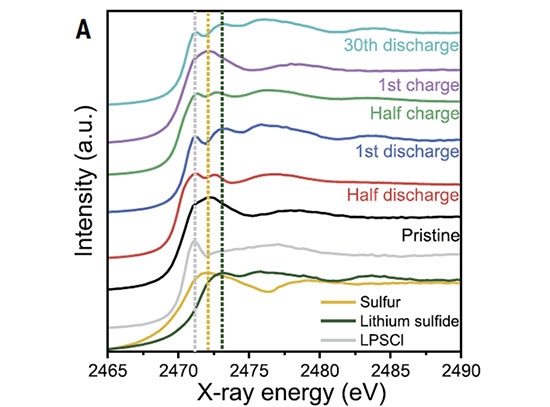
Improving Next Gen Solid-State Lithium Batteries with Halide Separation
Wednesday, August 13, 2025
Scientists discover technique that could lead to safer, cost-effective, longer-lasting solid-state batteries.
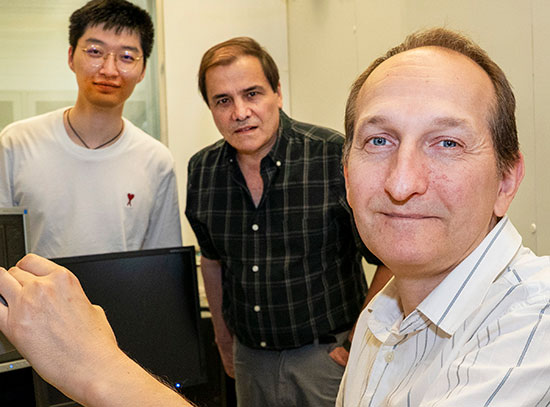
Small, Shapeshifting Catalytic Nanoparticles Steer Carbon Dioxide Conversion
Thursday, August 7, 2025
First-of-its-kind multimodal study reveals that smaller catalytic nanoparticles transform while converting carbon dioxide, unlike their larger counterparts.
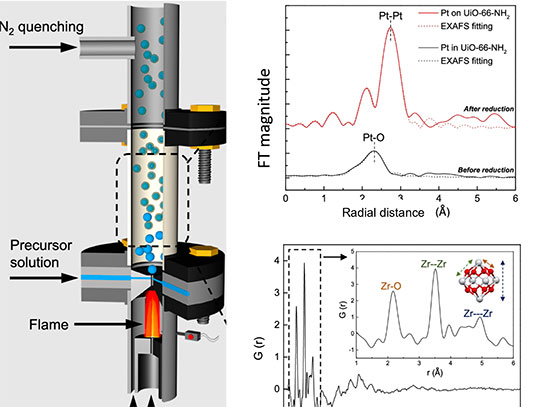
A New Route to Highly Complex, Stable Metal-Organic Frameworks
Wednesday, April 9, 2025
Compared to conventional synthesis methods that takes hours, researchers synthesize materials within milliseconds.

Brookhaven's Top 10 Discoveries of 2024
Thursday, December 19, 2024
Brookhaven Lab celebrates a year of scientific successes, from creating the biggest bits of antimatter to improving qubits, catalysts, batteries, and more!
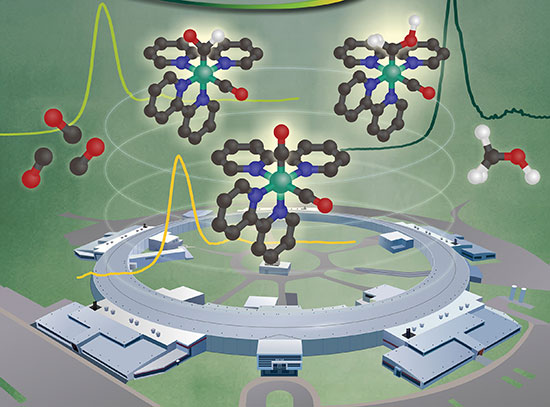
Renewable Catalysts for the Reduction of CO to Methanol
Wednesday, December 11, 2024
The reduction of carbon monoxide to methanol was achieved using renewable organic hydride donors, ruthenium complexes, and light.
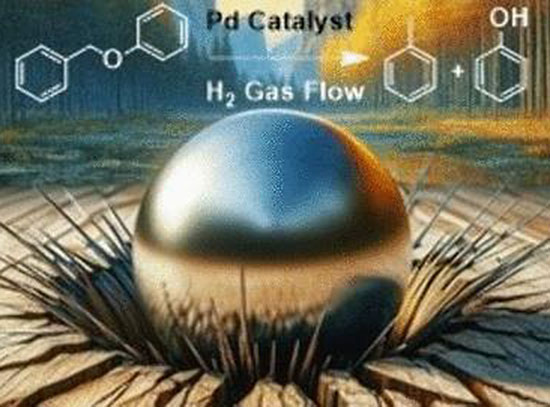
Georgia Tech Researchers Develop More Efficient Approach for Turning Plant Biomass into Useful Chemicals
Friday, October 4, 2024
Researchers develop an approach that could transform lignin into valuable chemicals more efficiently than ever before.
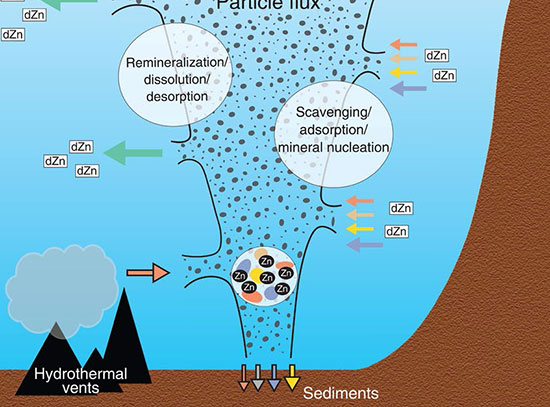
A New Link Between Biological & Inorganic Zinc in the Ocean Cycle
Monday, September 30, 2024
This new facet of the zinc ocean cycle spotlights the impact of inorganic zinc particles on biological productivity.

Juan Jimenez Named Blavatnik Regional Awards Finalist
Tuesday, September 17, 2024
Honor recognizes research on catalysts for transforming greenhouse gases into useful products
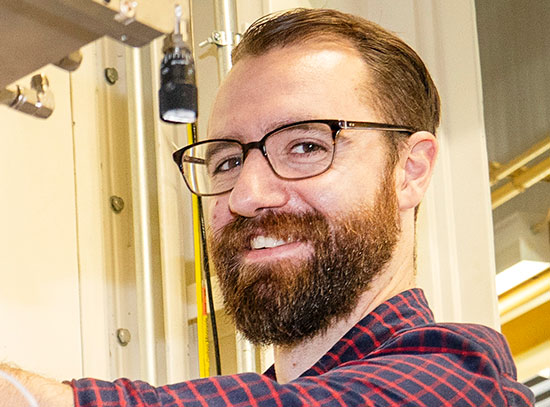
Conquering Cleaner Catalysis
Thursday, September 5, 2024
2024 Goldhaber Distinguished Fellowship awardee Steve Farrell reflects on how humanity's challenges drive his research.
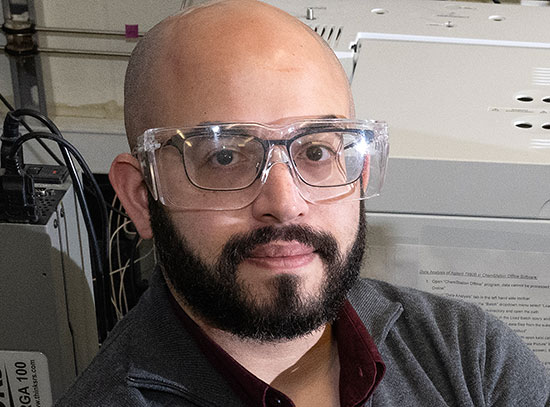
Catalyst for 'One-Step' Conversion of Methane to Methanol
Thursday, August 22, 2024
Scientists demonstrate highly selective catalyst for low-temperature, direct conversion of natural gas to liquid fuel.
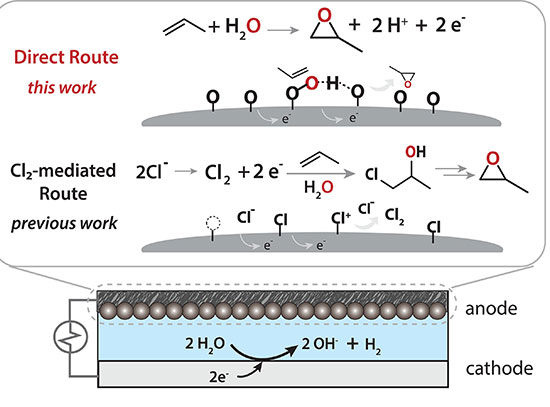
A Better Catalyst for Propylene Oxide Production
Friday, June 14, 2024
Researchers identified and characterized a catalyst designed to more safely yield the industrial chemical propylene oxide.
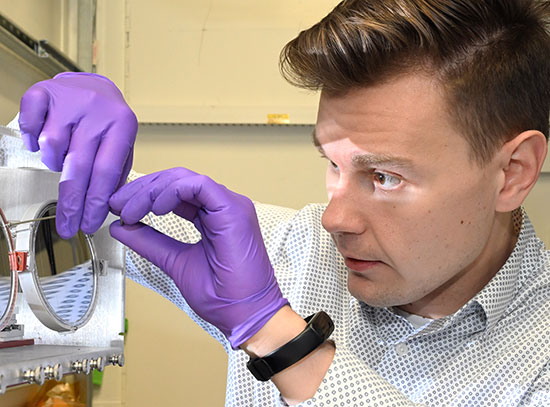
Finding the Catalyst for a More Sustainable Future
Wednesday, April 10, 2024
Scientists explore alternative catalyst materials for affordable, stable hydrogen fuel cells.
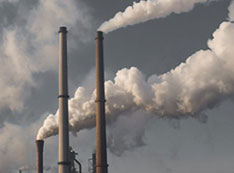
CO2 Conversion Helps Industry, Addresses Climate
Tuesday, February 20, 2024
Engineers at the University of Cincinnati created a more efficient way of converting carbon dioxide into valuable products while simultaneously addressing climate change.

Catalytic Combo Converts CO2 to Solid Carbon Nanofibers
Thursday, January 11, 2024
Tandem reactions converting CO2 to carbon nanofibers could help offset emissions of potent greenhouse gas by locking carbon away in a useful material.
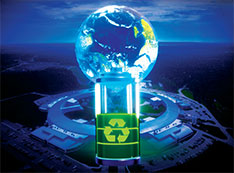
Uncovering Reaction Mechanisms of Aqueous Zn/MnO2 Batteries
Wednesday, August 16, 2023
Scientists elucidate the mechanisms that drive aqueous Zn/MnO2 batteries
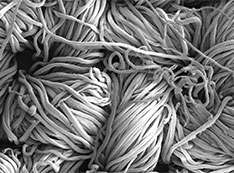
A New Antimicrobial Cotton Textile with Cu ions in Nanofibers
Tuesday, January 10, 2023
A team of researchers developed new antimicrobial cotton textiles with copper (Cu) ions incorporated into the cotton structure at the molecular level (Cu-textile), utilizing the strong coordination bonding between Cu ions and the cellulose molecules.
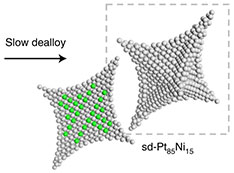
Predicting the Durability and Activity for Pt Catalysts
Wednesday, October 12, 2022
Future eco-friendly cars could use proton-exchange membrane fuel cells based on platinum (Pt) catalysts.

UCLA-Led Study Could Be Step Toward Cheaper Hydrogen-Based Energy
Monday, October 3, 2022
Researchers devise method for predicting performance of catalysts in fuel cells.
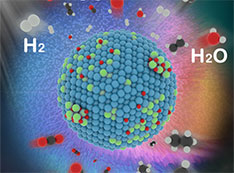
Steering the Conversion of CO2 and Ethane
Thursday, March 31, 2022
Scientists identified key features driving carbon dioxide transformation.
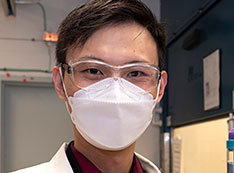
Steering Conversion of CO2 and Ethane to Desired Products
Wednesday, February 9, 2022
Study IDs key catalytic features that drive reaction specificity when transforming CO2 (a greenhouse gas) and an underutilized component of natural gas into higher-value chemicals
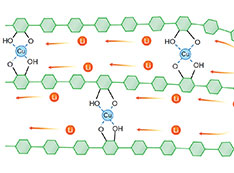
Turning to Trees for Improving Battery Performance
Friday, December 31, 2021
Scientists designed a new solid ion conductor that combines copper with polymer chains of cellulose nanofibrils.
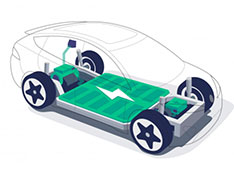
New Material Could Pave Way for Better, Safer Batteries
Wednesday, December 22, 2021
A material derived from trees could potentially replace liquid electrolytes in next-generation batteries.

Researchers Team up to get a Clearer Picture of Molten Salts
Monday, November 29, 2021
Researchers at the Department of Energy’s Oak Ridge, Brookhaven and Idaho national laboratories and Stony Brook University have developed a novel approach to gain fundamental insights into molten salts, a heat transfer medium important to advanced energy technologies.
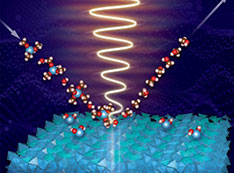
Watch and Learn How Nanostructured Thin Films Grow
Wednesday, March 31, 2021
Scientists develop powerful tools to study the growth of nanostructures.
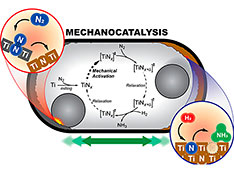
New Approach for Ammonia Production
Sunday, January 31, 2021
Scientists show first proof of principle for improved ammonia production to meet today’s global food needs.
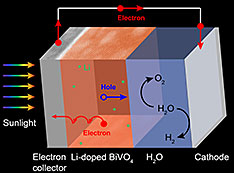
Driving Water Splitting to Create Chemical Fuels
Monday, December 7, 2020
Scientists improved the performance of an electrode material for converting solar energy to hydrogen—an energy-dense and clean-burning fuel.
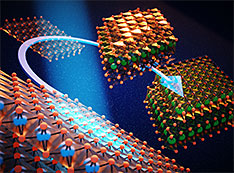
Revealing a Reaction Mechanism in an Electrode Material
Friday, July 31, 2020
Scientists studied how titanium disulfide in sodium (Na)-ion batteries could improve their performance for applications in electric vehicles.

Two is Better Than One
Wednesday, April 15, 2020
Scientists fit two co-catalysts on one nanosheet for better water purification.
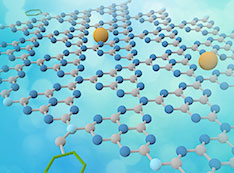
Two Catalysts Are Better Than One
Tuesday, March 31, 2020
Scientists fit two co-catalysts on one nanosheet for better water purification.

Following the Data Trail to Accelerated Discovery
Friday, October 4, 2019
Software tracking how data were generated and transformed will enable better science.
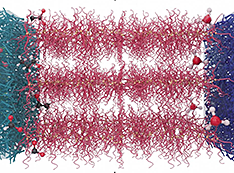
Electrocatalyst Turns Greenhouse Gas into Pure Liquid Fuel
Monday, September 30, 2019
Rice Lab's 'green' invention reduces carbon dioxide into valuable fuels
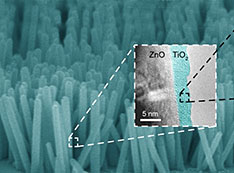
Optimizing the Growth of Coatings on Nanowire Catalysts
Wednesday, July 31, 2019
Scientists chemically treated the surface of wire-looking nanostructures made of zinc oxide to apply a uniform coating of titanium dioxide; these semiconducting nanowires could be used as high-activity catalysts for solar fuel production.
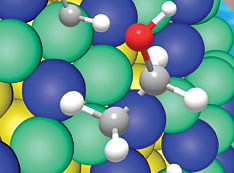
New Core-Shell Catalyst for Ethanol Fuel Cells
Friday, June 7, 2019
New catalyst greatly boosts efficiency of ethanol electro-oxidation, offering promise for liquid-fuel-cell-powered drones.
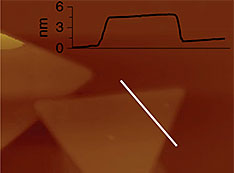
Copper Nanosheets as Improved Electrochemical Catalysts
Friday, May 31, 2019
Scientists synthesized free-standing nanosheets that reduce carbon monoxide and dioxide to usable multicarbon products

Cause of Cathode Degradation Found for Nickel-rich Materials
Sunday, March 31, 2019
To discover the cause of cathode degradation, scientists used multiple x-ray-based techniques and found a potential remedy
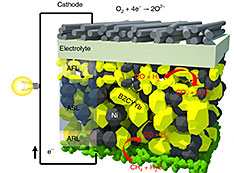
Robust Fuel Cell Runs on Nearly Dry Methane
Thursday, January 31, 2019
Scientists study solid oxide fuel cells as flexible and future energy sources

Top 10 Discoveries of 2018
Monday, January 7, 2019
From uncovering mysteries of the universe to building better batteries, here are Brookhaven Lab’s top 10 discoveries of 2018.
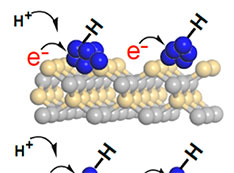
Single Atoms Break Carbon's Strongest Bond
Friday, November 30, 2018
Scientists demonstrate a new form of single-atom catalyst capable of breaking carbon-fluorine bonds, one of the strongest known chemical bonds.
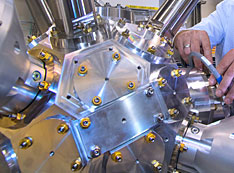
Single Atoms Break Carbon's Strongest Bond
Tuesday, October 2, 2018
Scientists discovered that single atoms of platinum can break carbon-fluorine bonds, one of the strongest known chemical bonds.
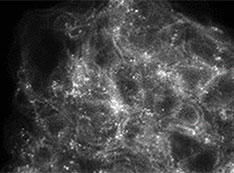
Catalytic Transformation of Carbon Feedstocks to Liquid Fuels
Tuesday, July 31, 2018
Scientists find a potential cost-effective, non-precious metal catalyst.
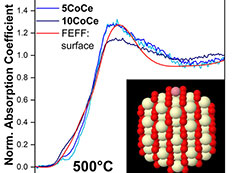
Mesoporous Co/CeO2 Catalysts for Hydrogen Production
Thursday, May 31, 2018
Scientists open a pathway for developing new and inexpensive catalysts.
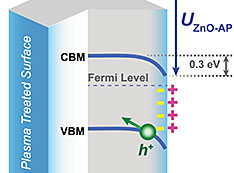
Atomic Flaws Create Surprising, High-Efficiency UV LED Materials
Saturday, March 31, 2018
Subtle surface defects increase UV light emission in greener, more cost-effective LED and catalyst materials
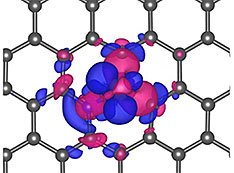
Scientists Discover New Electrocatalyst to Convert CO2 to CO
Saturday, March 31, 2018
Scientists show that single nickel atoms are an efficient, cost-effective catalyst for converting carbon dioxide into useful chemicals
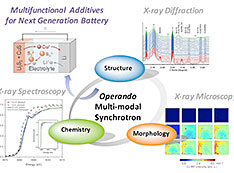
Multimodal Research Provides Insight into Lithium-Sulfur Batteries
Wednesday, January 31, 2018
Scientists gained insights into the chemical reactions and possible side effects of lithium-sulfur batteries using a combination of x-ray characterization techniques

Scientists Design Promising New Cathode for Sodium-based Batteries
Thursday, July 20, 2017
Scientists have designed a new type of cathode that could make the mass production of sodium batteries more feasible. Batteries based on plentiful and low-cost sodium are of great interest to both scientists and industry as they could facilitate a more cost-efficient production process for grid-scale energy storage systems, consumer electronics and electric vehicles.
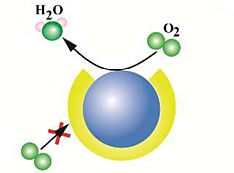
Accelerating a Key Reaction in Fuel Cells and Batteries
Wednesday, May 31, 2017
Researchers pinpointed some of the factors that affect the catalysts’ performance, a first step toward determining how to improve them.




